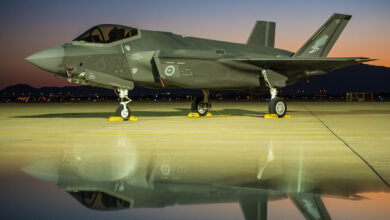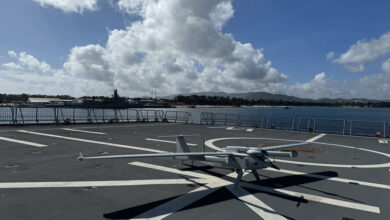US and UK identify soldiers killed in Camp Taji, Iraq rocket strikes
A Polish soldier wounded in the attack is expected to survive
The U.S. Defense Department on Friday, March 13 identified two Army and Air Force personnel killed in a rocket attack on Camp Taji airbase in Iraq two days earlier.
Army Specialist Juan Miguel Mendez Covarrubias, 27, and Air Force Staff Sergeant Marshal D. Roberts, 28, were killed in the Wednesday rocket attack on Camp Taji, north of Baghdad, the Pentagon said.
Lance Corporal Brodie Gillon, a 26-year-old reservist with the Scottish and North Irish Yeomanry, was also killed, the U.K. Ministry of Defence said on Thursday.
A Polish soldier was also wounded, though not fatally, a spokesperson for the Polish Armed Forces told The Defense Post.
The U.S. on Thursday carried out airstrikes against what it said were Hashd al-Shaabi militia sites in Iraq in response to the barrage on Taji, which houses personnel from the U.S.-led Coalition against Islamic State.
U.S. Central Command Commander General Kenneth F. McKenzie said the strikes “were designed to destroy Iranian-supplied advanced conventional weapons, and that the U.S. acted in self-defense in response to a direct and deliberate attack on an Iraqi base that hosts Coalition service members.”
The Camp Taji attack marked an unusually deadly week for U.S. military personnel in Iraq. Two Marine Raiders were killed in a fierce firefight with Islamic State in the Makhmour mountain region during an operation with Iraqi Security Forces.
In January, the U.S. military killed Iranian Islamic Revolutionary Guard Corps Quds Force commander Qassem Soleimani and Iraq’s de facto head of the PMU, Abu Mahdi al-Muhandis, in a drone strike after a series of provocations by both sides following a December rocket attack on Iraq’s K1 airbase near Kirkuk. That attack killed one U.S. military contractor of Iraqi origin and wounded other Iraqi and U.S. personnel.
The U.S. blamed Kataib Hezbollah for the December attack. The group, which has ties to Soleimani and the IRGC, denied responsibility.
Soleimani’s killing prompted the Iraqi government to temporarily close its airspace to American military flights and call for foreign troops to leave the country, but the U.S.-led Coalition against ISIS resumed operations with the Iraqi Security Forces in late January.
The U.S. and NATO have discussed with Iraqi officials the possibility of reducing the American troop presence and expanding NATO’s security force training mission in Iraq.












